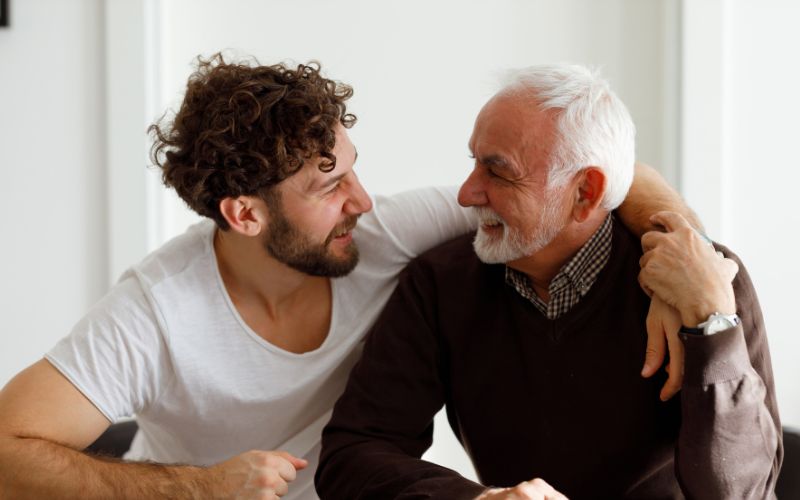All relationships follow a set of rules. Most often these rules are implicit, but when we engage with others, there are always expectations about what we can and can’t say or do. For example, we would never show up at our doctor’s home at 10:00p.m. to let them know we think we have a cold coming on.
An important part of the recovery process is identifying and setting our boundaries. While we love and are close to our spouses, children, or other family members, we are still separate people. Boundaries are intentionally stated requirements that we communicate with others in order to protect ourselves and grant ourselves the freedom to live our own lives.
Life without Boundaries
When living in the chaos that can surround addiction and mental health issues, it is not uncommon for individuals or family systems to have poor boundaries. Many times fueled by misguided love, fear, or simply not knowing what to do, some individuals find themselves engaging with abusive, dishonest, or manipulative behavior on a regular basis.
Life without boundaries often means that someone else has the ability to dictate how we are going to feel or how our day is going to go. Some common examples of poor boundaries could include getting in screaming matches, living with someone who is violating your house rules, or paying for things for someone that they could pay for themselves.
Ultimately, living without boundaries forces us to compromise on our values. As we move our proverbial line in the sand back further and further, we feel increasingly slighted. When we do not have good boundaries, we are much more likely to dwell on the past, ignore self-care, or experience resentment (at lots of people, not just the affected loved one). In some cases, we may be exploited, stolen from, or manipulated.
Identifying and Setting Our Boundaries
An important first step in identifying and setting boundaries is to acknowledge that boundaries are loving. As long as we are doing something for someone else that they could learn to do for themselves, we are sending them a message that they are incapable and incompetent. If we truly love the people with whom we are setting boundaries, we want to hold them accountable to act in alignment with their values and we want them to build the skills of resilience they need in life, rather than doing things for them.
Your boundaries can be whatever you want. Whether alone or with a partner, take some quiet time to reflect on what it feels like when your boundaries are respected and when they are crossed. Write down your boundaries and be specific, using “I” statements (remember, boundaries are for you, not them). It can help to categorize boundaries, such as physical, financial, communication, etc. Some examples in each of these areas may include:
“I will not allow you in my home if you are actively using drugs or alcohol.”
“I am willing to pay for your college class if you receive a B or above.”
“I will only talk to you if you keep your voice down and are respectful.”
Communicating boundaries can be anxiety provoking. If you are nervous about setting boundaries, that is likely a sign that you really need to. At Alpha Behavioral Health, clinicians can guide you and your loved one through this process.
Life with Boundaries
One of the most important parts of setting boundaries is communicating what happens when a boundary is crossed. For example, you may have set a boundary that you will not let people yell at you. When they call and begin to raise their voice, it’s important to have communicated what will happen next. For example, let them know that you will hang up and if they call again, you will block their number for a few hours.
At first, it may fill you with anxiety to hold your boundaries. However, as you re-normalize living in alignment with your own values (would you call and yell at someone?) you will experience a sense of relief and peace. Over time, you will be forced to repeat your boundaries less as the individuals in your life realize that you will no longer tolerate certain behavior. It is not uncommon to see a dramatic improvement in your relationships with others, as well as yourself, as you begin to get your own needs met more regularly.
While setting boundaries to force others to change rarely works, it’s not unlikely to see changes in our loved one. We may experience more polite interactions, as well as observe them proud of themselves for doing things on their own we would have done for them in the past. Notably, we get to engage in our relationships from a place of mutual respect, rather than fear or control. Al-Anon, a fellowship for family members of alcoholics, shares that these promises are all possible in recovery.
Early recovery is the perfect time to establish boundaries and set a new standard for your family’s interactions. At Alpha Behavioral Health, we work closely with clients and their family members to establish and communicate their boundaries in a loving and calm way. As we give ourselves the space we need, we become much better at showing up caringly for our loved one, sending them a message – even with our boundaries – of “I love you.”






